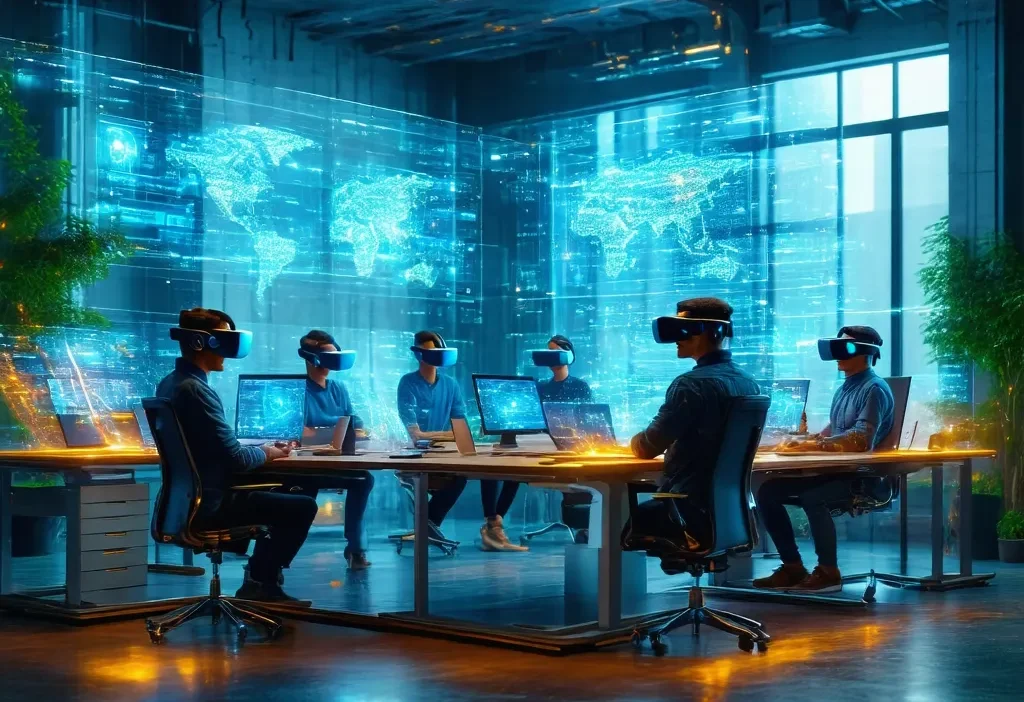Top Digital Marketing Trends Shaping the Future in 2025
In 2025, digital marketing continues to evolve rapidly, driven by technological advancements and changing consumer behaviors. As a marketer, staying ahead of these trends is crucial for maintaining competitive edge. Let’s dive into the most impactful trends shaping the industry this year.
1. AI-Powered Personalization
AI personalization has reached new heights in 2025, allowing businesses to tailor marketing messages with unprecedented precision. Forbes reports that companies leveraging AI-driven analytics see a 30% increase in customer engagement (source: Forbes). By analyzing vast datasets, brands can deliver hyper-personalized content, enhancing user experience and boosting conversion rates.
- Dynamic ad creation tailored to individual preferences
- AI chatbots providing instant customer support
- Predictive analytics forecasting consumer behavior
Implementing AI personalization doesn’t just enhance engagement; it fosters deeper customer loyalty. For instance, e-commerce platforms now use AI to recommend products based on past interactions and browsing history, creating a seamless shopping experience.
2. Metaverse Marketing: The Next Frontier
The metaverse, a convergence of virtual reality (VR) and augmented reality (AR), has emerged as a game-changer in digital marketing. In 2025, brands are capitalizing on this immersive platform to create memorable experiences. According to HubSpot, 45% of consumers prefer shopping in VR environments due to their interactive nature (source: HubSpot). Companies like Nike and IKEA have already made significant strides by creating virtual showrooms where customers can interact with products.
Imagine attending a virtual product launch event where you can试穿 clothing or explore a new car’s features in 3D. This level of interactivity not only enhances brand engagement but also provides valuable data for future marketing strategies.
3. Sustainability at the Core
Sustainability is no longer a buzzword; it’s a business imperative. In 2025, consumers are actively seeking brands that align with their values, particularly environmental responsibility. A study by TechCrunch reveals that 65% of millennials are willing to pay more for eco-friendly products (source: TechCrunch). This trend has led to an increase in green marketing campaigns and ethical branding practices.
Brands are now transparently sharing their sustainability efforts, from carbon footprint reduction to ethical sourcing. For example, Unilever has committed to using 100% recyclable packaging by 2025, a move that resonates deeply with eco-conscious consumers.
4. Interactive Content Dominance
Interactive content, such as quizzes, polls, and AR experiences, is capturing the attention of modern audiences. In 2025, brands are leveraging these elements to create engaging campaigns that foster customer interaction. A report by Content Marketing Institute highlights that interactive content leads to a 75% higher engagement rate compared to static content (source: CMI). Platforms like TikTok and Instagram Reels have further amplified the popularity of short-form, interactive videos.
For instance, a beauty brand might create an AR filter allowing users to try on makeup virtually. This not only entertains but also encourages social sharing, expanding the brand’s reach organically.
5. Voice Search Optimization
Voice search optimization is becoming a critical component of digital marketing strategies. With 50% of searches expected to be voice-driven by 2025 (source: SEJ), brands must adapt to meet this shift. Voice search often involves longer, more conversational queries, requiring a different approach to keyword research and content creation.
To optimize for voice searches, businesses are focusing on natural language processing (NLP) and creating content that answers common questions in a conversational tone. This ensures higher visibility in voice-activated devices like smart speakers and virtual assistants.
6. Data Privacy and Compliance
Data privacy regulations have become stricter, prompting brands to rethink their data collection strategies. In 2025, the European Union’s General Data Protection Regulation (GDPR) has set a global standard, with other countries implementing similar laws. According to Morning Consult, 81% of consumers expect brands to protect their personal data (source: Morning Consult).
Brands are now adopting transparent data policies and obtaining explicit consent from users before collecting information. This not only builds trust but also avoids potential legal repercussions.
7. Video Marketing Evolution
Video marketing continues to dominate, with short-form content leading the charge. In 2025, platforms like TikTok and Instagram Reels have become primary channels for reaching younger audiences. eMarketer predicts that video ad spend will account for 44% of total digital ad spending by year-end (source: eMarketer). Marketers are now focusing on creating authentic, relatable content that resonates emotionally with viewers.
For example, a travel brand might share user-generated content showcasing real experiences, fostering a sense of community and trust. This approach not only drives engagement but also encourages organic sharing among users.
Conclusion
In 2025, digital marketing is evolving rapidly, driven by technology and changing consumer preferences. Brands must stay ahead of these trends to remain competitive and relevant. By embracing AI personalization, exploring the metaverse, focusing on sustainability, creating interactive content, optimizing for voice search, ensuring data privacy, and leveraging video effectively, businesses can navigate this dynamic landscape successfully.
Remember, the key to success in digital marketing is not just adopting new trends but understanding your audience’s needs and preferences. Continuous learning and adaptation are essential as we move forward into an even more connected world.
References
- Content Marketing Institute (CMI)
- HubSpot
- Morning Consult
- TechCrunch
- Search Engine Journal (SEJ)
- HubSpot
- eMarketer





